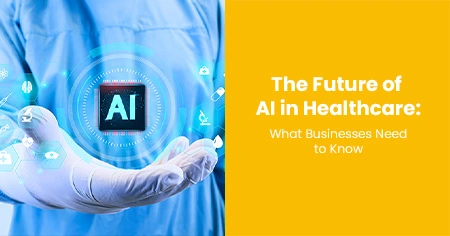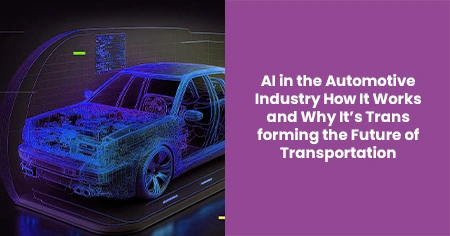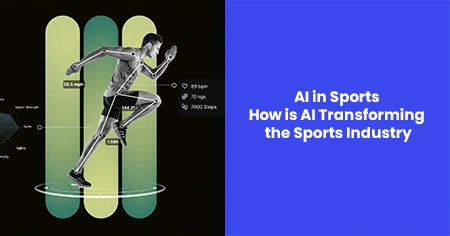Technological advancements have opened up new possibilities for medical diagnosis, therapy, and patient care. Thanks to vast amounts of healthcare data and access to complex algorithms, healthcare practitioners may use AI to make faster and more accurate decisions, improve operations, and provide better patient care.
As they were mesmerized by how quickly the healthcare software analyzed complex medical records, extracted valuable insights, and predicted patient outcomes with utmost confidence and accuracy, their faith and trust in us as a renowned healthcare software development company faded.
In this article, we will examine the current state of artificial intelligence in healthcare, including its applications, benefits, and future prospects.
What is AI in Healthcare?

AI in healthcare is the application of machine learning, natural language processing, deep learning, and other AI technologies to improve the experiences of both healthcare workers and patients. AI's data-processing and prediction skills allow health practitioners to manage their resources better and proactively tackle many facets of healthcare.
With this technology, doctors can make more accurate diagnoses, health administrators can find electronic health information more quickly, and patients can receive more timely and individualized care.
Current uses of AI in Healthcare
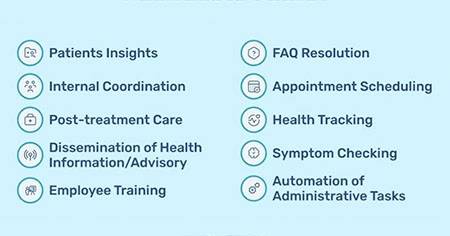
Healthcare software development companies are increasingly adopting AI in a variety of fields, including:
Drug discovery and development
AI accelerates drug research and development by evaluating large datasets to uncover potential drug candidates. AI-powered simulations can forecast therapeutic efficacy and mimic drug interactions, saving time and resources.
Diagnosis and disease detection
AI-powered algorithms can properly evaluate medical pictures such as X-rays, MRIs, and CT scans to diagnose cancer, fractures, and cardiovascular disorders. Machine learning models find trends and abnormalities in medical data, allowing for early disease identification.
Predictive analytics and risk assessment
AI can help public health by evaluating patient data and environmental factors to forecast disease outbreaks. Early predictive analytics intervention helps control health problems and reduce readmissions, improving patient outcomes.
Administrative efficiency
AI-powered applications can help healthcare firms and medical billing companies streamline administrative activities like billing, appointment scheduling, and answering patient questions. Robotic Process Automation (RPA) can also increase the efficiency of medical records management and claims processing.
Treatment planning and personalization
AI can help healthcare software development companies develop individualized treatment regimens based on patients' genetic, clinical, and lifestyle data. Clinicians can improve therapeutic outcomes by personalizing treatment suggestions to individual health profiles.
Telemedicine & remote monitoring
AI-powered wearable gadgets and sensors collect health data in real-time and allow for remote patient monitoring. Telemedicine platforms also use AI for remote consultations, allowing patients to get healthcare treatments regardless of physical location.
The Future of AI in Healthcare:
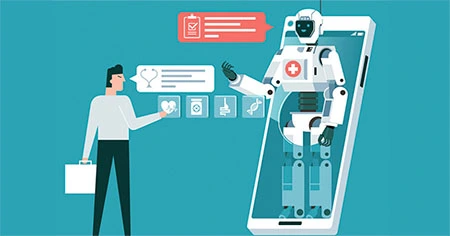
AI integration in healthcare has created numerous opportunities, including improving data utilization and driving innovation in medicine and prescription research. Knowing the existing applications of AI in healthcare is crucial for better understanding the unique problems that come with its adoption.
The following are just a few examples of how AI is applied in the custom healthcare software development company:
Unlocking unstructured data
97% of healthcare data must be utilized and inaccessible due to its lack of structure. This comprises information from X-rays, medical records (such as scanned documents and clinical notes), and genomic data. AI technologies, such as machine learning and natural language processing, can efficiently process this unstructured data, making it more accessible and relevant to healthcare practitioners. Large language models, such as those employed by ChatGPT, may swiftly summarise a patient's chart history and extract significant insights from clinical notes, thereby improving diagnostic accuracy and treatment regimens.
Operational efficiencies
AI improves operational efficiencies by streamlining administrative procedures such as scheduling, billing, and claims processing, lowering expenses. For instance, healthcare providers can enhance billing operations by using an advanced medical billing tool, which helps automate claims submissions, reduce errors, and speed up reimbursements.
For example, practices can use machine learning to proactively simplify claim processing with automated denial management solutions that review new claims as they are created and highlight those that are likely to be denied. These processes allow healthcare software development companies in USA to allocate more resources to patient care.
Data integration and analysis
One of AI's key strengths is its capacity to collect, analyze, and enhance data from various sources, such as EHRs, wearable devices, and genomics. By taking a holistic approach to health data and medical history, physicians can gain a more comprehensive picture of each patient, leading to more personalized treatment solutions.
Emotional Artificial Intelligence for autism spectrum disorder and mental health issues
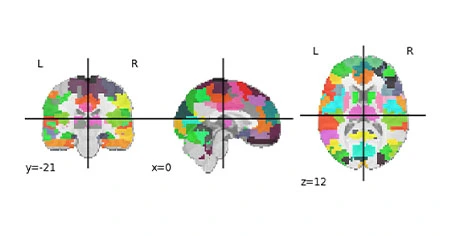
Patients, particularly those with mental illnesses and autism, benefit from more useful and engaging telemedicine apps because of the implementation of emotional AI. AI-powered healthcare apps can also employ speech analysis to identify mental diseases such as dementia, depression, autism, and Down syndrome.
Accelerating research
AI accelerates drug discovery research by anticipating how chemicals interact with biological targets. This can shorten the time and expense of introducing new pharmaceuticals. AI models may also scan large databases to discover prospective medication candidates and forecast their efficacy and safety, accelerating clinical trial phases.
Continuous health tracking
AI-powered remote monitoring technologies can continuously measure a patient's health parameters, such as heart rate, blood pressure, and glucose levels.
Each technique can warn healthcare software development providers of possible problems before they escalate. AI's continuous monitoring of chronic diseases can reduce hospital readmissions and improve patient's quality of life.
Diagnosis of chronic diseases
AI technology in healthcare offers enormous potential for identifying chronic diseases and improving treatment accuracy, aided by critical data insights. For example, AI-enabled whole-heart computational models offer individualized treatment to understand the various remedies for ventricular arrhythmia better.
Forecasting patient needs
Predictive analytics can forecast patient volumes, allowing hospitals to allocate staffing and resources more effectively. AI solutions can assist healthcare software development companies in better-anticipating demand and allocating resources, ensuring that patients receive timely care.
Ambient intelligence (AmL)
Ambient Intelligence (AML) has been a rapidly growing trend in healthcare solution development. It is a hub for developing AI, IoT, and Big Data technologies. Furthermore, ambient intelligence in healthcare can help minimize the time it takes for a patient to see and confer with a doctor, automate emergency care support, and monitor a patient's vital signs.
Reducing diagnostic errors
AI algorithms increase diagnosis accuracy, lowering the risk of costly medical errors. For example, AI systems can more rapidly and accurately evaluate medical images, allowing radiologists to uncover diseases that would otherwise go undetected during manual examinations. This improves patient outcomes while lowering the expenses associated with misdiagnosis and additional therapies.
Virtual assistants and chatbots
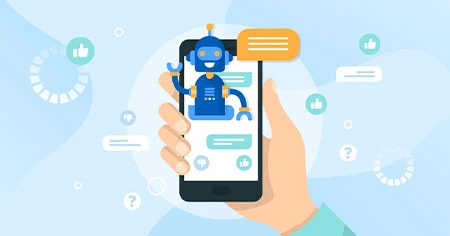
AI-powered chatbots and virtual assistants boost patient engagement by giving 24-hour access to medical information, appointment scheduling, medication reminders, and more. These solutions may quickly handle common questions, allowing healthcare workers to focus on more complicated activities while improving the patient experience.




